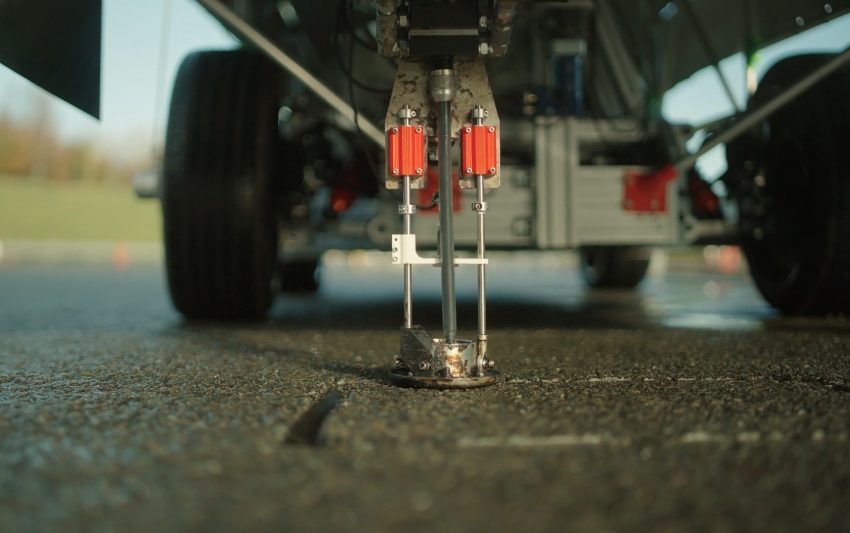

The robot, officially called ARRES PREVENT, identifies and characterises cracks and potholes in the road using Artificial Intelligence (AI) using imaging technology.
Having been in development since 2020, it is currently in its pilot phase and has been tested extensively in a lab environment. It is due to hit the roads of Hertfordshire early this year for a ‘real-life’ road repair on a residential street in the county.
Developed by academics at the University of Liverpool in partnership with Hertfordshire County Council highways engineers, it is thought to be the first Autonomous Road Repair System (ARRES).
Once it has identified a defect, the robot automatically fills the cracks to keep out surface water, which in turn helps to prevent potholes from forming.
In a statement, Hertfordshire CC said that the 'brand-new technology could revolutionise the way Hertfordshire and the rest of the world deal with potholes and issues with road surfaces in the future'.
Cllr Phil Bibby, executive member for highways, said: 'We’re thrilled to be at the coalface of this exciting new technology, working with world-class tech inventors and engineers.
'We’ve long been leading the way in cracking the pothole issue and in recent times have been trialling new and improved ways to fill potholes.'
He added: 'As we continue to face another cold winter, we know we’re likely to see an increase in potholes forming as the road surface gets too cold and water and ice get into cracks that have formed over time.
'Using state-of-the-art technology to prevent potholes from forming in the first place could be exactly what we need to ensure our road network remains one of the best in the country. We know this issue matters to our residents, so it matters to us too.'
This article first appeared on Highways.
Sign up here to receive our free weekly news bulletin and quarterly e-book.